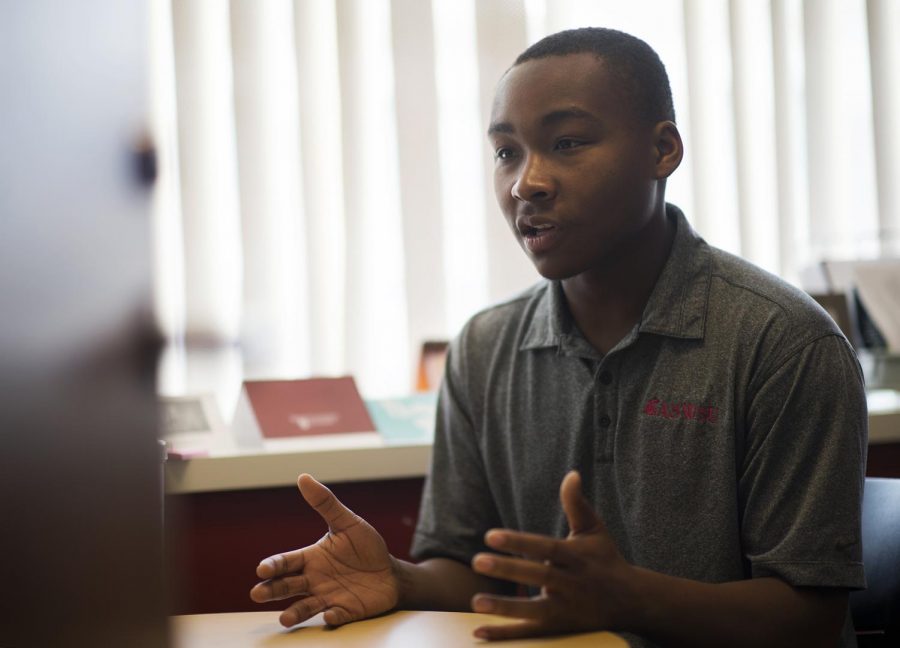ASWSU won’t block students on Twitter
Rogers may take action against non-students for cases of harassment
LUKE HOLLISTER | DAILY EVERGREEN FILE
Former ASWSU President Jordan Frost, pictured here talking at the start of the fall 2017 semester, said he blocked three non-student users who harassed him.
June 21, 2018
ASWSU President Savannah Rogers and Vice President Tyler Parchem use social media accounts tied to their positions in office to engage with the community and disperse information among constituents.
However, with a federal court decision in May establishing that President Donald Trump cannot block Twitter users due to First Amendment rights, a question arises with how this applies to the highest-elected undergraduate student officials at WSU.
Former ASWSU President Jordan Frost said he blocked three members of the public who are not WSU students during his term, but the action was allowed by administrators.
“The basis of it was establishing that these communication channels are for undergraduate students attending Washington State University,” Frost said. “They were not associated with ASWSU and ASWSU membership is actually defined in the constitution … as basically every undergraduate in Pullman.”
Frost said he blocked an individual for harassing some ASWSU members.
Will Abrahamse, a WSU alum, said he was blocked in Dec. 2017 after replying to a tweet and then engaging in a conversation with Frost about the elimination of the WSU Performing Arts program, which he was involved with as a student in the early 2000s. Abrahamse said he was blocked without warning.
“[We were] just sort of debating some of the facts that were out there,” he said. “Then suddenly, we just weren’t having a conversation anymore. It was just done, so there was never an explanation, never a comment or anything else.”
Abrahamse said he and two other alumni were concerned about what they called “misinformation” being released by the university in regards to the elimination of the department and that the three wanted to remain involved in their former school’s community.
“We’ve tried to stay connected because it’s Pullman and that’s what you do,” he said. “You can’t really leave. But it’s hard to see some of the changes that are happening and some of the vitriol that’s coming out and not try to defend something you care about.”
He also said the discussion never became personal and stayed on the topic of funding for WSU Performing Arts.
Rogers said the policy the group has implemented currently is to ensure the posts on their official accounts are professional, as they represent the organization directly. She also said she usually direct messages people instead of publicly replying if a person wants to further discuss a topic.
“I think social media is really difficult in the sense that it can be so impersonal and you may not understand the person it’s coming from or what their intentions are,” she said. “For me, it’s always important that … if there’s deeper questions, to set up an in-person meeting or a phone call.”
Rogers said she thinks Frost made the best decisions for his administration and that she supported his use of social media. However, she does not foresee herself blocking anyone, especially students, unless they cross a line, she said.
“If someone is really just trying to bully us, I think that’s where I’d draw the line because I am a human and I do have my mental health to account for,” Rogers said. “At the end of the day, we are students, we are the peers of these people.”
Parchem said the group will have discussions in the future about more social media guidelines, but they want to keep in mind the goal of the accounts.
“People shouldn’t worry about our social media,” he said. “We just want it to be an avenue for us to get out information and for people to interact with us.”
















